When beginners start learning about websites they often want to know what PHP serves for in web development. The web depends on PHP as its most popular scripting language because it stands for Hypertext Preprocessor. The system operates across millions of websites and web applications which include both small blogs and major platforms such as Facebook and WordPress.
PHP exists throughout the web system because developers can access its open-source framework which provides database connection capabilities and flexible programming options. The guide will show you the operational aspects of PHP and its functional applications and prove why developers still use it for web development today.
What is PHP

PHP functions as a server-side scripting language which developers use to build interactive and dynamic web page content. The main difference between PHP and HTML lies in PHP’s ability to process data and handle requests and user interactions while HTML remains a static markup language. The server executes the code and delivers the resulting HTML content to the user’s browser. The system operates at high speed because PHP remains hidden from the end user while delivering rapid performance.
PHP exists as an open-source platform which users can access without charges so it gained rapid popularity among developers. The software operates on Windows and macOS and Linux platforms while maintaining compatibility with Apache and Nginx web servers.
How PHP Works in Web Development
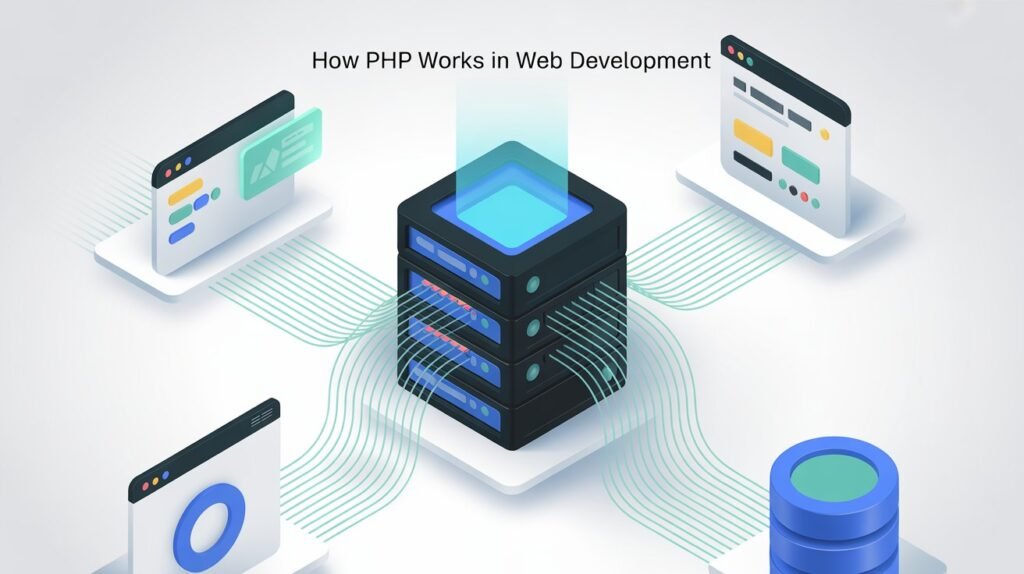
The browser sends a server request when you type a website URL into the address bar. The server runs PHP code on the page and processes data before returning the output as plain HTML to the user.
PHP enables database connection and form processing and session tracking and cookie management. The system verifies your login credentials through PHP which establishes a new session after it confirms your details in the database.
Primary Uses of PHP in Web Development
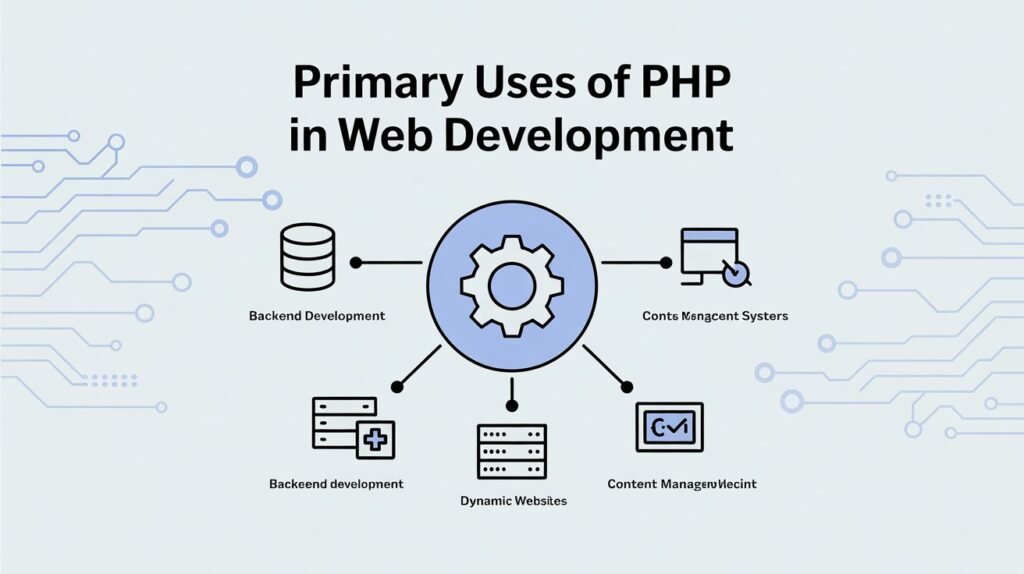
PHP serves as the foundation for creating interactive websites and web applications throughout the world. The main function of this system operates through content management systems (CMS) which include WordPress, Joomla and Drupal. The platforms run on PHP technology which supports millions of websites across the world.
Another important use is in e-commerce platforms like Magento, WooCommerce, and OpenCart.PHP enables secure transaction processing through its built-in features which also include product management and user authentication capabilities.
PHP in Popular Web Applications
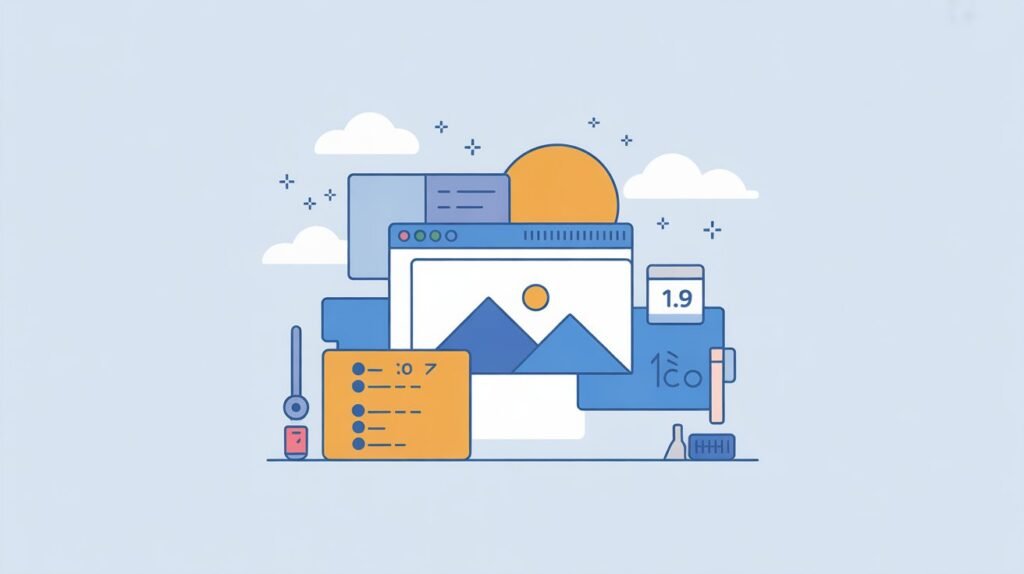
PHP powers several popular web platforms which operate on the internet. The Facebook platform originated as a PHP-based project but developers added custom features to transform it into its present form.
The provided examples demonstrate how PHP technology enables developers to create both personal blogs and complex enterprise-level platforms. PHP maintains its position as a leading technology for high-traffic data-heavy applications because of its active community and regular software updates.
Examples of Popular Applications Built with PHP
| Platform | Type | PHP Role |
| WordPress | Content Management | Core engine for websites and blogs |
| Social Networking | Early codebase built on PHP | |
| Wikipedia | Knowledge Sharing | Handles millions of queries daily |
| Magento | E-commerce | Secure shopping and product management |
| Drupal | CMS | Framework for websites and online portals |
Integration of PHP with Databases
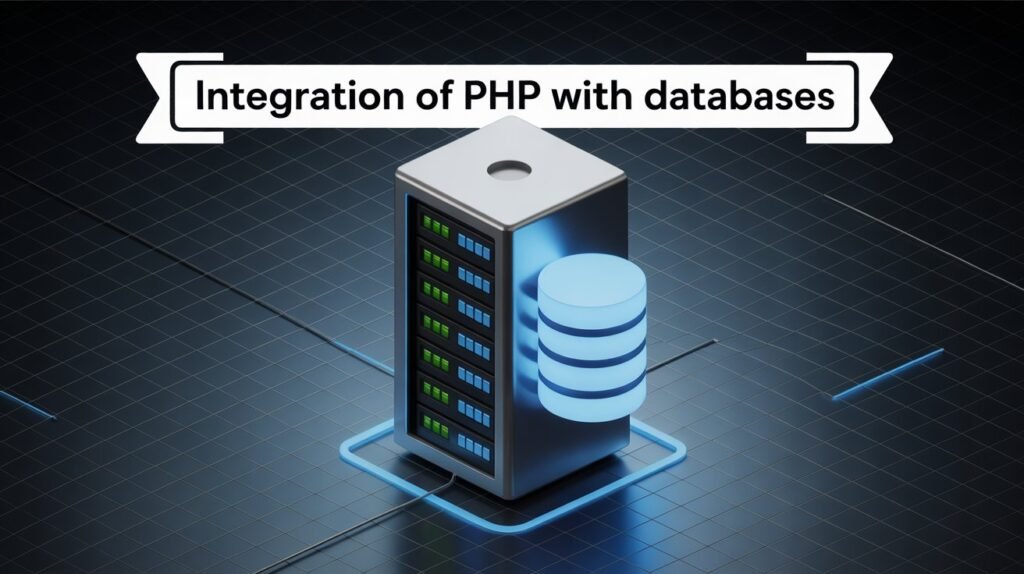
PHP stands out because it provides developers with database connection capabilities. The system allows MySQL and PostgreSQL and MariaDB and MongoDB NoSQL databases. The combination makes PHP ideal for creating websites that handle data processing.
When users leave comments on blogs PHP stores their input into databases which then display the information when someone accesses the webpage. The absence of this connection would cause websites to stay unchanged without any interactive elements.
PHP and Modern Web Frameworks
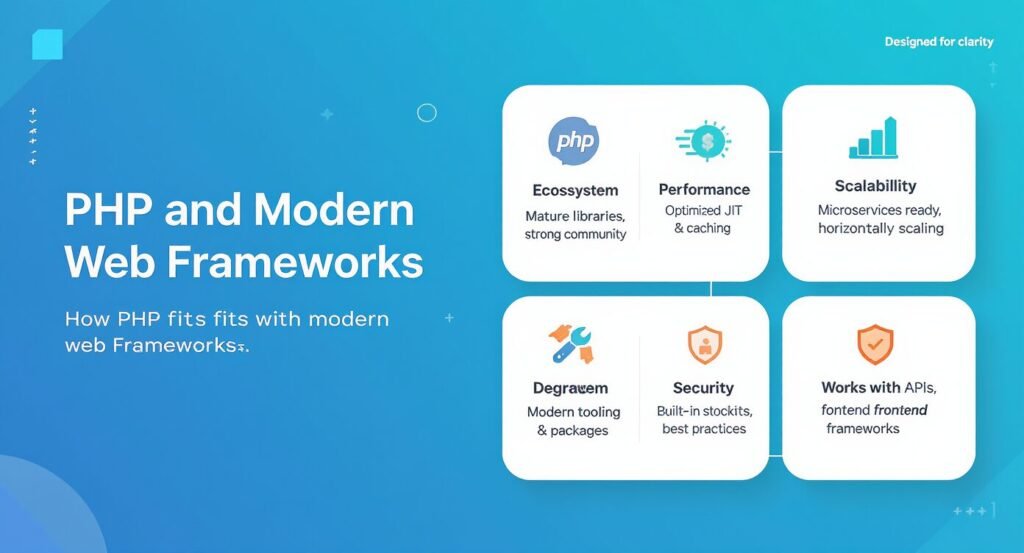
To simplify development, PHP comes with modern frameworks like Laravel, Symfony, and CodeIgniter.These frameworks offer pre-built tools and libraries and architectural patterns which help developers write code faster while enhancing application security.
Laravel stands as a leading choice among all available frameworks. The platform offers built-in capabilities which include authentication and routing and caching. Frameworks provide developers with time-saving tools which help them avoid programming mistakes to increase their productivity when working with PHP.
Popular PHP Frameworks and Features
| Framework | Key Features | Use Cases |
| Laravel | Authentication, routing, caching | Web apps, APIs |
| Symfony | Reusable components, flexibility | Enterprise-level applications |
| CodeIgniter | Lightweight, fast performance | Small to medium apps |
| CakePHP | Rapid prototyping, convention-based | Business apps, startups |
| Yii | High performance, secure | Large-scale web projects |
Advantages of Using PHP

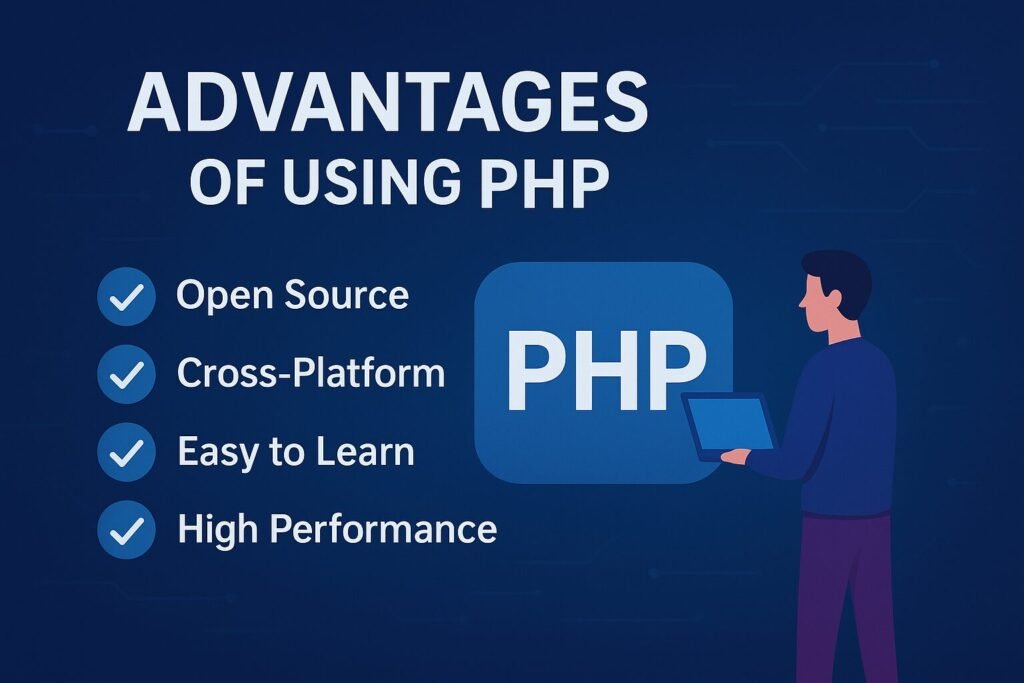
PHP provides multiple advantages which contribute to its enduring popularity among developers. The software operates as open-source which allows developers to access it without paying licensing fees. The programming language provides straightforward learning because its syntax resembles C and Java. Users can start working with this tool because it provides basic features which match advanced capabilities for professional users.
The system receives strong community support as its main advantage. The online resources contain thousands of tutorials and libraries and forums which provide continuous support to users. PHP functions as a full-stack development tool because it integrates with HTML and CSS and JavaScript.
Limitations and Criticisms of PHP
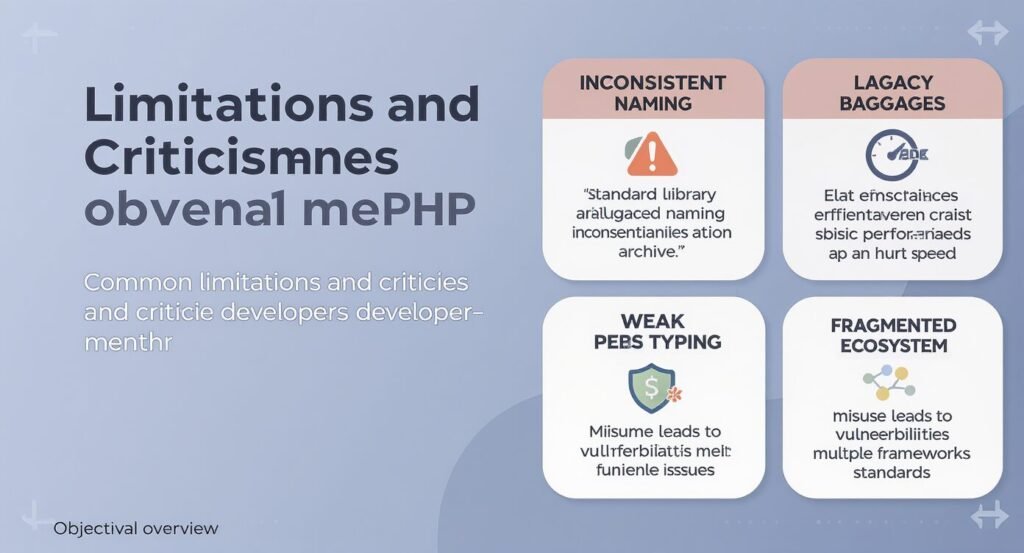
Despite its strengths, PHP has some drawbacks.Critics argue that PHP code can become messy if not structured properly.Developers who fail to follow best practices will expose their systems to security risks which include SQL injection attacks.
PHP faces competition from modern technologies which include Node.js and Python and Ruby on Rails. These offer faster performance for certain tasks and are popular for real-time applications.PHP continues to lead in numerous fields because of its established ecosystem and ongoing support from its user base.
PHP in the Future of Web Development
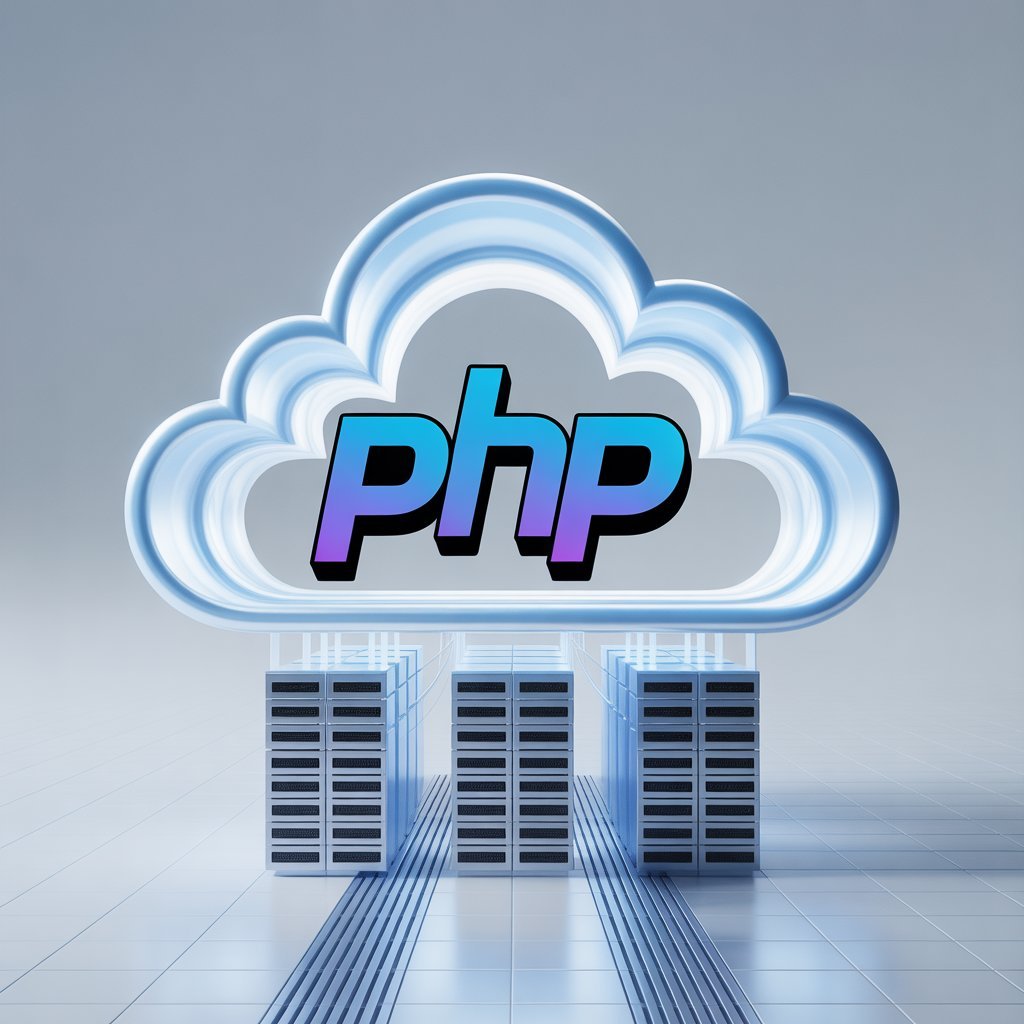
The future of PHP looks strong, even after more than two decades. PHP 8 brought performance improvements, better error handling, and features like JIT compilation, which makes execution faster. These updates keep PHP modern and relevant.
With its role in CMS platforms, e-commerce solutions, and enterprise applications, PHP is unlikely to disappear. Its ability to evolve with frameworks, security updates, and new tools ensures it will remain important in the future of web development.
PHP Versions and Key Features
| Version | Release Year | Key Features |
| PHP 5 | 2004 | Object-oriented programming support |
| PHP 7 | 2015 | Major performance improvements |
| PHP 8 | 2020 | JIT compilation, modern syntax |
| PHP 8.2 | 2022 | Better security, improved performance |
| PHP 8.3 | 2023 | Expanded features for developers |
PHP in Cloud and Hosting Environments

PHP is one of the most popular languages supported by nearly every hosting company. Shared hosting, VPS, and cloud servers are all pre-supported with PHP, so it’s a favorite among small businesses and startups.
On cloud platforms, PHP integrates perfectly with services such as AWS, Google Cloud, and Azure. Docker also allows developers to deploy PHP applications in containers, which are scalable and simple to manage.
Learn More : PHP vs JavaScript for web development
Security Practices in PHP Development
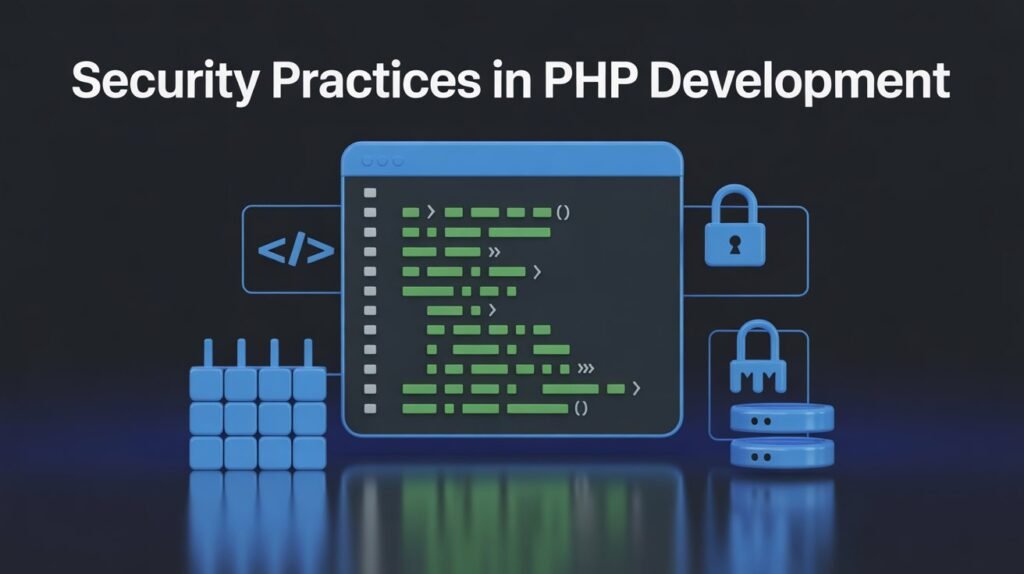
Security is an important issue in web development, and PHP provides several tools to secure applications. Prepared statements, input validation, and password hashing are some of the features that prevent attacks like SQL injection and cross-site scripting.Most contemporary PHP frameworks have security layers built-in. Laravel, for example, has CSRF protection, encryption, and authentication built-in. This enables developers to concentrate on developing features without having to worry about vulnerabilities all the time
PHP for API Development
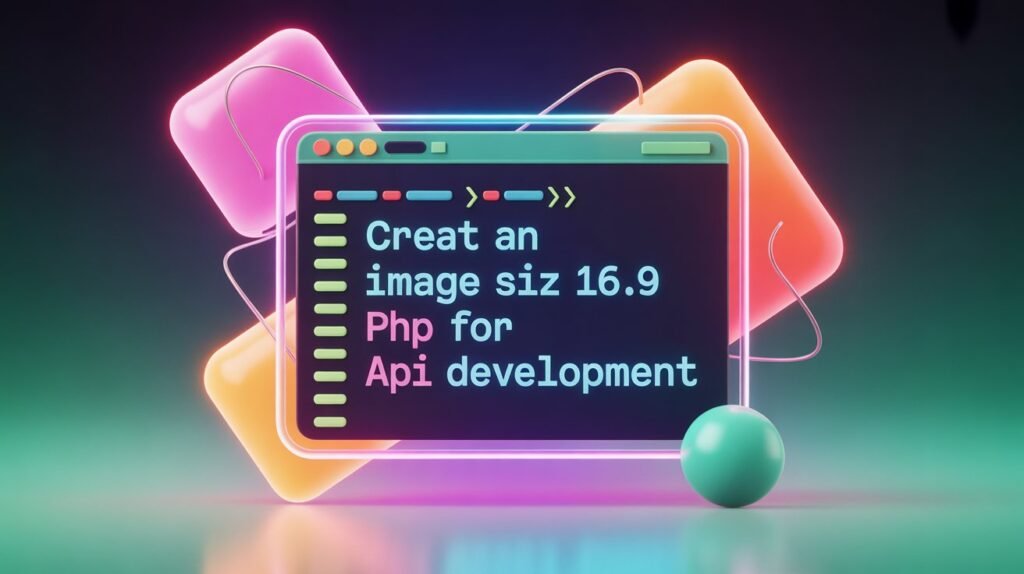
PHP is not just applied to web page construction but also for the creation of Application Programming Interfaces (APIs). With frameworks such as Laravel and Lumen, developers can quickly implement RESTful APIs to enable apps to exchange data with one another.
For instance, a webshop might employ a PHP-driven API to pass product details to its mobile application. An API can even process secure payments, manage user accounts, and update stock levels in real time.
FAQs
Is PHP still used in 2025?
Yes, PHP is still widely used in 2025.The software operates WordPress and various e-commerce platforms through its core system.
What websites are built with PHP?
Websites like Facebook (originally), Wikipedia, and WordPress are built using PHP.Web applications depend on it as their fundamental structure.
Can PHP work with JavaScript?
Yes, PHP and JavaScript work together. PHP runs on the server, while JavaScript runs on the client, creating a complete web experience.
Is PHP good for beginners?
Yes, PHP and JavaScript work together.PHP operates on the server side while JavaScript functions on the client side to deliver a complete web experience.
Will PHP be replaced in the future?
Yes, PHP and JavaScript work together.PHP operates on the server side while JavaScript functions on the client side to deliver a complete web experience.
Conclusion
So, what does PHP do in web development? It is the foundation of dynamic websites, driving everything from blogs to large e-commerce sites. It interacts with databases, allows modern frameworks, and executes on all major platforms. Though it is limited, its flexibility and thriving community keep it alive. PHP is not only a part of the history of the web, it is also a part of its future. As long as developers require adaptive and expandable solutions, PHP will continue to be an important web development tool.



